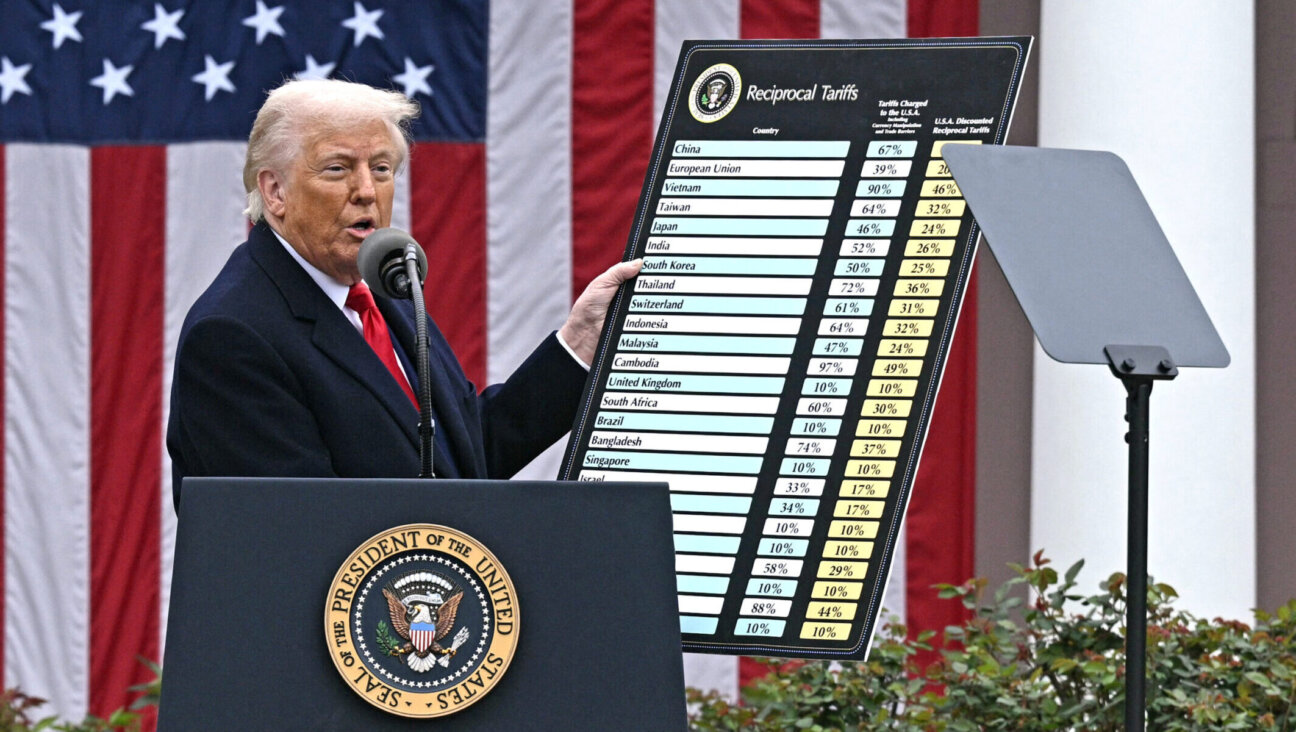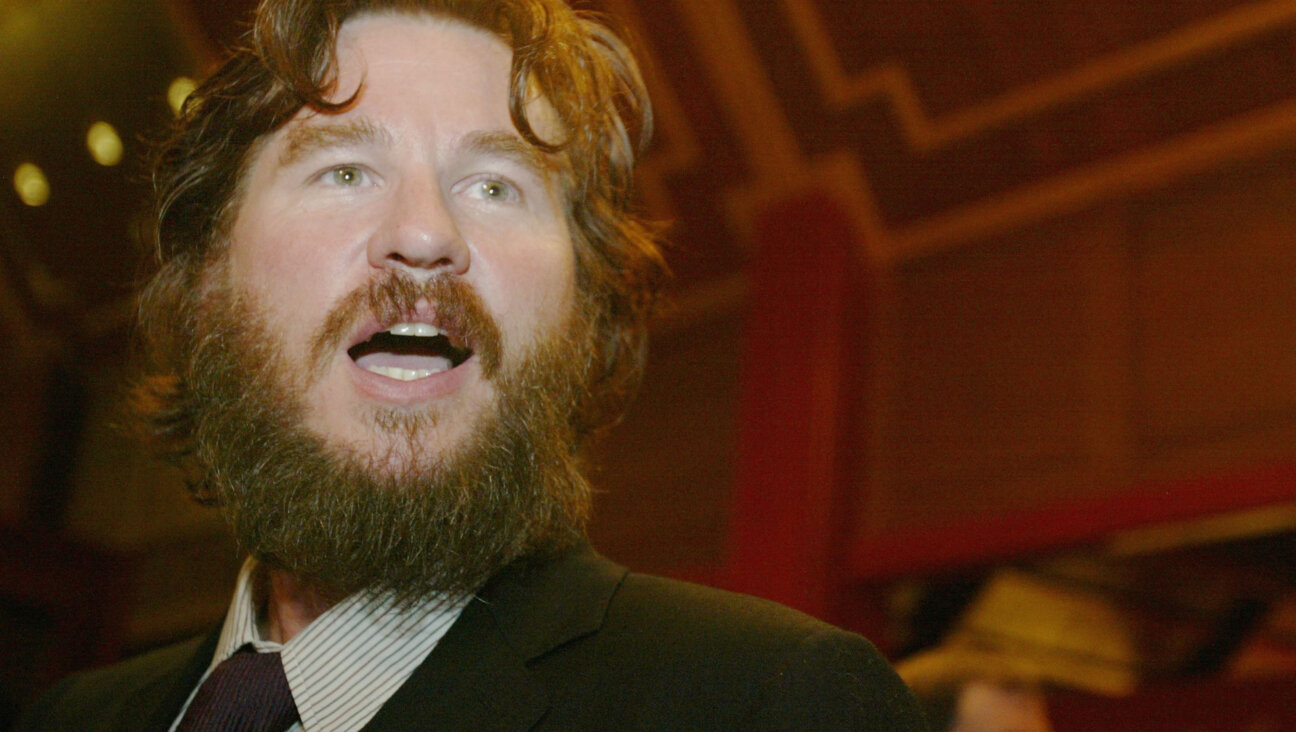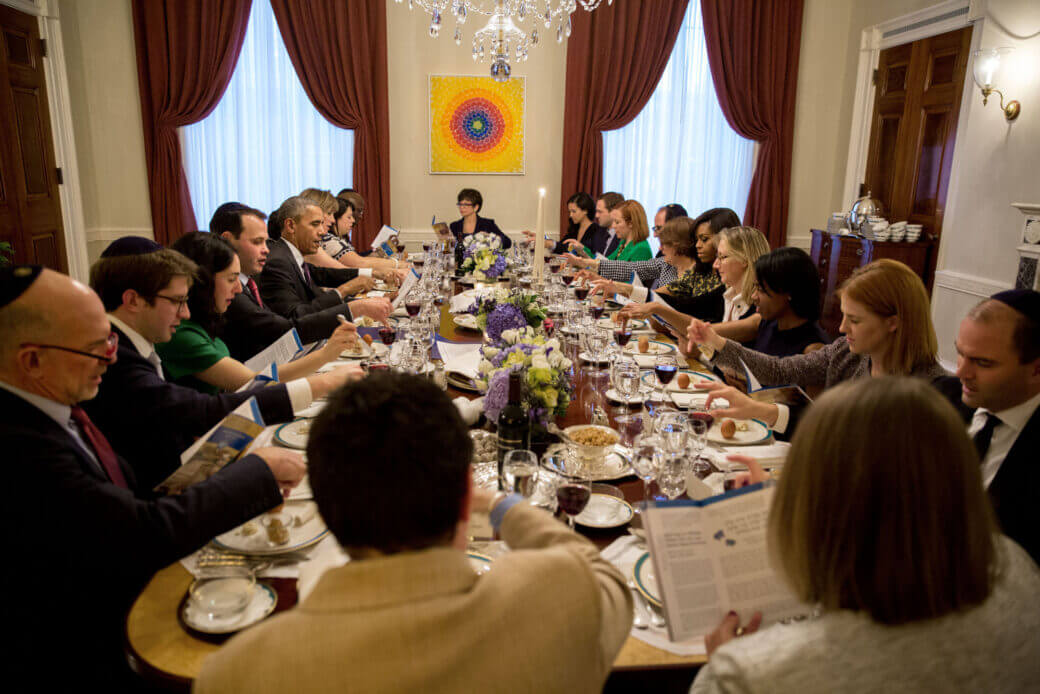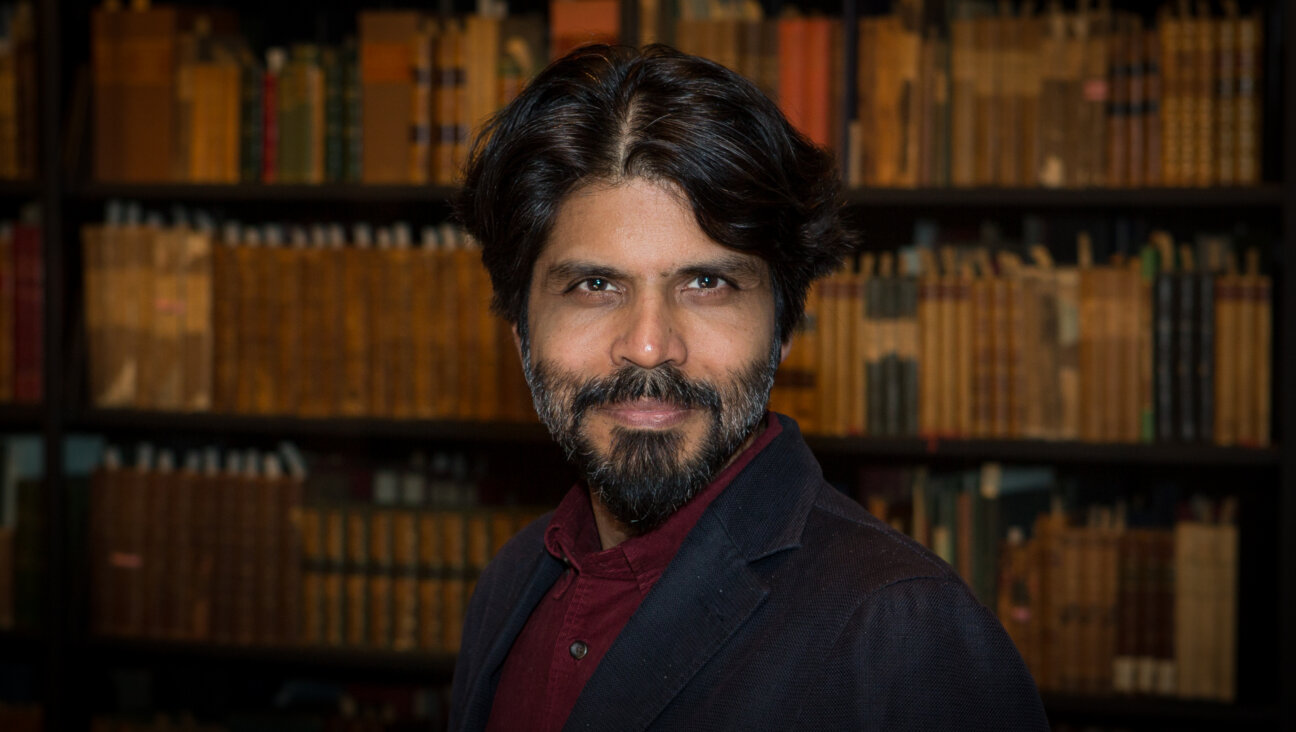What We Talk About When We Talk About God
A Touch of the Sacred: A Theologian’s Informal Guide to Jewish Belief
By Eugene B. Borowitz and Frances W. Schwartz
Jewish Lights Publishing, 256 pages, $21.99.
A few years ago, I met a young man actively involved in the minyan movement in New York City. He was excited to tell me about how Jews of varying backgrounds had found common ground to come together for the Sabbath. Thinking about all these different types of observance worshipping under one roof, I was moved to ask how this played out in regard to belief. In other words, what were people saying to each other about God? “God?” my new friend asked, bemused. “No one talks about God.”
During the years since, I have written and talked about what it means to be a Jew who believes in God and who places God, not tradition, at the center of my religious life. And yet, I have seen that belief in God is, for many people, mostly irrelevant to living a religious life or being a “mentsh,” as Eugene Borowitz puts it in his new book, “A Touch of the Sacred: A Theologian’s Informal Guide to Jewish Belief.” Borowitz, a distinguished professor at the Hebrew Union College-Jewish Institute of Religion, sees an inherent problem with this and tries to rectify it in his book, which he co-wrote with Frances Schwartz. Borowitz’s book is a compelling, if somewhat unsatisfying, attempt to infuse God talk back into liberal Jewish faith.
In a time when there is no dearth of discussion about religion, God talk is largely absent. Even in the current atheism debate, little time is spent on the questions of God’s existence; much is devoted to the behavior of believers, or their subsequent ideas about things like evolution. That the religious themselves are not talking about God seems odd. And yet, within most communities of worship, there is an unspoken idea that members of any given congregation agree on what God is or isn’t. Many Reform congregations might just assume that their fellow congregants don’t really believe in God. What they share are social, and often political, values.
No other religion has been most influenced by modernism and rationalism than Judaism, and no other people has had such a profound effect on the rationalist spirit, particularly regarding religious thought. But this has meant, in different historical and cultural moments, that the irrational aspects of the religious life have taken a back seat to more practical and rational endeavors. At one time, Jews could rely on the Hasidic community to nurture the emotional and mystical aspects of Judaism. Liberal Jews could nod approvingly at their Hasidic cousins, confident that they would care for those parts of Judaism that modern Jews left behind. But over time, as Hasidic Judaism became the gatekeeper of observance, the spiritual aspect seems to have been secreted away. It is the popularization of Jewish mysticism that has made Jewish spirituality attractive to many Jews who otherwise would not feel the connection.
Borowitz offers, for me at least, the most authentic kind of Jewish teaching — one that is both rational and mystical, believing and skeptical. Borowitz eschews literalism of any kind, and yet refers to God in all the multifarious ways to which the tradition has given us access. For him, God is central to the Jewish faith, but he does not believe that conceptions rest with ancient teachings. Even the most liberal notions of the divine must “promote the long-range future of Judaism.” This is because, as Borowitz rightly explains, how we live is much more important than what we believe.
But the question remains: How does the liberal Jewish community, so invested in questions of social justice and ethics, integrate a God-centric spirituality into its life? In one illuminating story, Borowitz tells how he incorporated into his service an idea from a colleague to keep the ark open so that if someone was so moved, the person could spend time praying alone before the ark. Borowitz observed the unembarrassed way some of the congregants went up to the ark, in effect announcing to the rest of the congregation that they believed in God. But he also noted that these believers represented a clear minority.
Nevertheless, Borowitz does see a movement to a kind of hesitant spirituality from agnosticism in the Jewish community. But he smartly recognizes that a desire for spirituality is not the same as a desire for, or a belief in, God. There is still much fear about what it means to admit belief.
While I found “A Touch of the Sacred” to be deeply spiritual (as well as practical), the chapters stopped short of their intended mission to teach as well as to inspire. There is much to spark thought, but little to chew on. Nevertheless, Borowitz does an excellent job at defining terms and translating prayers, and for those who may be returning to Jewish practice, I would recommend this book as a way into not only thinking about why Judaism matters, but also how God can again play a role in the religious life.
Peter Bebergal is the co-author, with Scott Korb, of “The Faith Between Us: A Jew and a Catholic Search for the Meaning of God” (Bloomsbury, 2007).
The Forward is free to read, but it isn’t free to produce

I hope you appreciated this article. Before you go, I’d like to ask you to please support the Forward.
At a time when other newsrooms are closing or cutting back, the Forward has removed its paywall and invested additional resources to report on the ground from Israel and around the U.S. on the impact of the war, rising antisemitism and polarized discourse.
Readers like you make it all possible. We’ve started our Passover Fundraising Drive, and we need 1,800 readers like you to step up to support the Forward by April 21. Members of the Forward board are even matching the first 1,000 gifts, up to $70,000.
This is a great time to support independent Jewish journalism, because every dollar goes twice as far.
— Rachel Fishman Feddersen, Publisher and CEO
2X match on all Passover gifts!
Most Popular
- 1

News A Jewish Republican and Muslim Democrat are suddenly in a tight race for a special seat in Congress
- 2

Fast Forward The NCAA men’s Final Four has 3 Jewish coaches
- 3

Film & TV What Gal Gadot has said about the Israeli-Palestinian conflict
- 4

Fast Forward Cory Booker proclaims, ‘Hineni’ — I am here — 19 hours into anti-Trump Senate speech
In Case You Missed It
-

Fast Forward Trump’s ‘Liberation Day’ includes 17% tariffs on Israeli imports, even as Israel cancels tariffs on US goods
-

Fast Forward Hillel CEO says he shares ‘concerns’ over campus deportations, calls for due process
-

Fast Forward Jewish Princeton student accused of assault at protest last year is found not guilty
-

News ‘Qatargate’ and the web of huge scandals rocking Israel, explained
-
Shop the Forward Store
100% of profits support our journalism
Republish This Story
Please read before republishing
We’re happy to make this story available to republish for free, unless it originated with JTA, Haaretz or another publication (as indicated on the article) and as long as you follow our guidelines.
You must comply with the following:
- Credit the Forward
- Retain our pixel
- Preserve our canonical link in Google search
- Add a noindex tag in Google search
See our full guidelines for more information, and this guide for detail about canonical URLs.
To republish, copy the HTML by clicking on the yellow button to the right; it includes our tracking pixel, all paragraph styles and hyperlinks, the author byline and credit to the Forward. It does not include images; to avoid copyright violations, you must add them manually, following our guidelines. Please email us at [email protected], subject line “republish,” with any questions or to let us know what stories you’re picking up.















